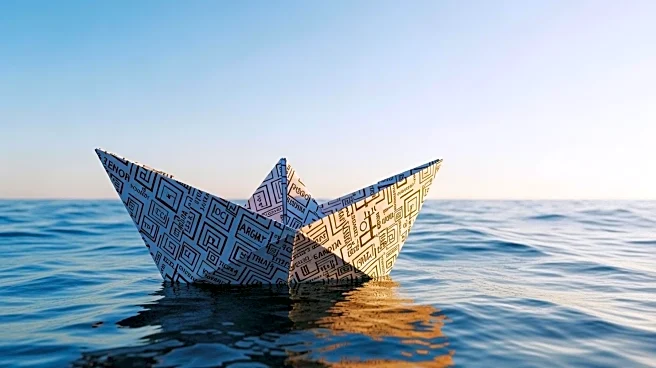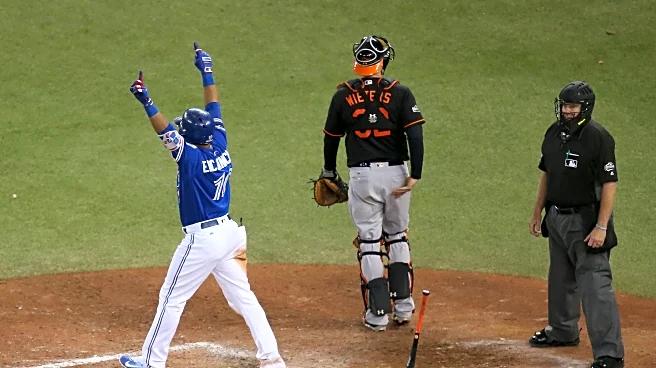What's Happening?
A flotilla of ships has departed from Barcelona, aiming to deliver humanitarian aid to the Gaza Strip and challenge the Israeli blockade. This initiative, known as the Global Sumud Flotilla, is the largest attempt to break the blockade by sea, involving around 20 boats and delegations from 44 countries. The flotilla carries essential supplies such as food, water, and medicine, responding to the dire humanitarian situation in Gaza, where food shortages have reached critical levels. Swedish climate activist Greta Thunberg is among the participants, advocating for safe passage and the establishment of a humanitarian sea corridor. The convoy plans to join additional ships from Italy and Tunisia, with the final leg of the journey expected to involve around 70 boats.
Why It's Important?
The flotilla's mission highlights the ongoing humanitarian crisis in Gaza, exacerbated by the Israeli blockade and military actions. The blockade has restricted access to essential supplies, contributing to severe food shortages and malnutrition among the Palestinian population. The involvement of high-profile activists like Greta Thunberg draws international attention to the plight of Gaza's residents and the broader geopolitical tensions in the region. Successful delivery of aid could alleviate some of the immediate humanitarian needs, while failure could further intensify calls for international intervention and policy changes regarding the blockade.
What's Next?
The flotilla is expected to reach Gaza around mid-September, with potential challenges from Israeli military forces anticipated. Previous attempts to breach the blockade have faced interception and detention by Israeli authorities, raising concerns about the safety and success of this mission. The international community may respond with increased diplomatic pressure on Israel to allow humanitarian aid into Gaza, while activists and supporters continue to advocate for the rights and welfare of the Palestinian people.
Beyond the Headlines
The flotilla's journey underscores the ethical and legal debates surrounding the Israeli blockade and the rights of Palestinians to receive humanitarian aid. It also reflects broader issues of international law and the responsibilities of nations in conflict zones. The participation of diverse international delegations highlights global solidarity with Gaza, potentially influencing public opinion and policy discussions on the Israeli-Palestinian conflict.









